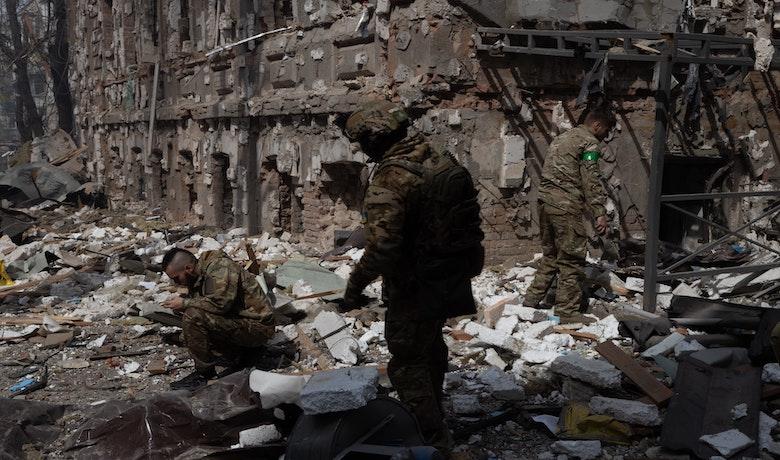Prosecuting War Crimes Symposium – German Domestic Prosecutorial Experience

Editor’s note: The following post highlights a subject addressed at a Lieber Institute expert workshop focusing on Prosecuting War Crimes. For a general introduction to this symposium, see Professor Sean Watts and Jennifer Maddocks’s introductory post.
The international community is committed to seeking justice for international crimes such as genocide, crimes against humanity, and war crimes. This post describes Germany’s efforts to implement this approach on a domestic level. The post surveys some of the challenges of domestic prosecutions of international crimes and presents potential solutions.
In 2002, Germany established its “Code of Crimes against International Law.” Section 1 states that the Code applies to genocide, crimes against humanity, and war crimes, even if the crime “was committed abroad and bears no relation to Germany.” The Code therefore implements universal jurisdiction for the crimes mentioned.
In Germany, the prosecution of international crimes falls within the competence of the Federal Public Prosecutor General of Germany according to Section 142a and Section 120(1)(8) of the Courts Constitution Act. Since the establishment of the Code, the Prosecutor General has prosecuted a number of perpetrators and obtained several verdicts concerning international crimes. For instance, German courts have convicted members of the so-called “Islamic State” for genocide or aiding and abetting genocide of Yazidis, war crimes, and crimes against humanity. Also, the Higher Regional Court of Koblenz rendered a verdict on January 13, 2022 against a former member of a Syrian secret service for crimes against humanity due to charges brought by the Federal Public Prosecutor General.
The fact that these offenses occurred in Syria or Iraq, rather than in Germany, raised challenges in investigating and bringing the charges. Many of the cases, for instance, relied on witness statements. While quite a few witnesses lived in Germany and therefore could be interviewed during the investigation on German soil, others lived abroad. Also, collecting crime scene evidence, for obvious reasons, becomes more complex concerning crimes committed in foreign countries. Yet experience has shown that the challenges can be addressed effectively when making use of the legal instruments in place.
Without doubt, one of the keys to investigating international crimes committed abroad is international cooperation. Some types of cooperation have been shown to be especially helpful. Concerning international crimes committed in Syria and Iraq, for instance, the mechanisms established by the United Nations—the UN Investigative Team to Promote Accountability for Crimes Committed by Da’esh/ISIL (UNITAD) and the International, Impartial and Independent Mechanism to Assist in the Investigation and Prosecution of Persons Responsible for the Most Serious Crimes under International Law Committed in the Syrian Arab Republic since March 2011 (IIIM)—are of tremendous importance for domestic law enforcement authorities. These organizations, among other things, provide domestic investigators with valuable evidence including witnesses, documents linked to crimes, and other battlefield evidence. Another vital international partner is the International Criminal Court and its Office of the Prosecutor.
Working closely together with domestic law enforcement agencies of other countries is also of great importance when it comes to sharing evidence through legal requests. Within the European Union, the European Network for Investigation and Prosecution of Genocide, Crimes Against Humanity and War Crimes (known as the Genocide Network) has become an important hub to bring together prosecutors from different States to increase the efficiency of prosecuting international crimes. Furthermore, through EUROJUST, the European Union Agency for Criminal Justice Cooperation, national law enforcement agencies may set up joint investigation teams to investigate specific events or aspects in an efficient manner. Likewise, cooperation with non-governmental organizations is also of great significance.
On a domestic level, structural investigations have proved to be another useful tool. Structural investigations focus on specific events or conflicts rather than on individual suspects. This approach enables law enforcement authorities to collect evidence generally regarding the events or conflicts in question to create an evidentiary foundation for potential investigations against individual suspects. The Federal Public Prosecutor General of Germany has opened several structural investigations, for instance concerning potential international crimes committed in connection with the armed conflict in Ukraine and the civil war in Syria.
In sum, prosecuting international crimes committed abroad presents formidable challenges. However, as experience in Germany has shown, there are legal instruments and measures in place that enable law enforcement authorities to investigate such crimes in an efficient manner and to secure justice for the most serious international criminal offenses.
***
Dr. Nicolas Kneba is a prosecutor in Germany who is currently a member of the War Crime Unit of Germany’s Federal Public Prosecutor General.
Photo credit: Pexels


